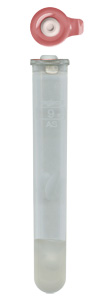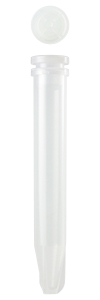梅毒血清反応検査の結果の解釈
| STS |
TP抗原 |
結果の解釈 |
| RPR〔LA〕等 |
TP抗体〔LA〕等 |
| (-) |
(-) |
非梅毒
ごく初期の早期梅毒 (まれ) |
| (+) |
(-) |
ごく初期の早期梅毒※
生物学的偽陽性 (BFP) |
| (+) |
(+) |
活動性梅毒 (要治療)
治癒状態の梅毒 |
| (-) |
(+) |
治癒状態の梅毒
ごく初期の早期梅毒
TP抗原系の非特異反応による偽陽性 (まれ) |
※ BFPを呈する疾患や最近の感染機会の有無を調査する。
STS抗体価の推移をモニターし、TP抗体の陽性反応を認めた場合、初期の梅毒感染を疑う。
あくまでも臨床診断が優先であり、血清学的検査は補助診断である。
梅毒血清反応検査の使用と留意点
《STS》
カルジオリピン抗原に対する抗体。梅毒感染初期から陽性化し、治療後は陰性化する場合が多く梅毒症状をよく反映する。
生物学的偽陽性反応(BFP)が多い。
《生物学的偽陽性 (BFP)》
STS (RPR) は生物学的偽陽性 (BFP) が多く、梅毒感染以外に肝疾患、自己免疫疾患、妊婦などで偽陽性を示す場合がある。
《TP抗体》
トレポネーマ抗原に対する抗体で梅毒感染時に認められる特異的な抗体。
過去に梅毒陽性となった患者血清では、いつまでも抗体価が高値で持続する場合がある。
まれに非特異反応が認められる。
Interpretation of Results of Serologic Reaction Test for Syphilis
| STS |
TP antigen |
Interpretation of results |
| RPR〔LA〕, etc. |
TP antibody〔LA〕, etc. |
| (-) |
(-) |
Non-syphilis
Very early syphilis (rare) |
| (+) |
(-) |
Very early syphilis (rare)*
Biological false positive (BFP) |
| (+) |
(+) |
Active syphilis (requires treatment)
Syphilis in a cured state |
| (-) |
(+) |
Syphilis in a cured state
Very early stage syphilis
False positive due to nonspecific reaction of the TP antigen system (rare) |
* The investigation regarding the presence of any diseases that present with
BFP or recent opportunities for infection should be performed.
The progression of STS antibody titers should be monitored,
and if a positive reaction to TP antibodies is observed,
early syphilis infection is suspected.
Clinical diagnosis is always prioritized, and serological tests are only auxiliary diagnostics.
[Use and Notes of Serologic Reaction Test for Syphilis]
<STS>
The antibody against cardiolipin antigen. It becomes positive in the early stages of
syphilis infection and often becomes negative after treatment and reflects syphilis symptoms.
It often causes biological false positive reaction (BFP).
<Biological false positive (BFP)>
STS (RPR) has a high rate of biological false positives (BFP),
and in addition to syphilis infection,
false positives can also be seen in liver disease, autoimmune disease,
and in pregnant women.
<TP antibody>
The antibody against treponema antigen which
is the specific antibody observed during syphilis infection.
In the serum of patients who have previously tested positive for syphilis,
antibody titers may remain high for an extended period of time.
Nonspecific reaction is observed in rare cases.


![]()

